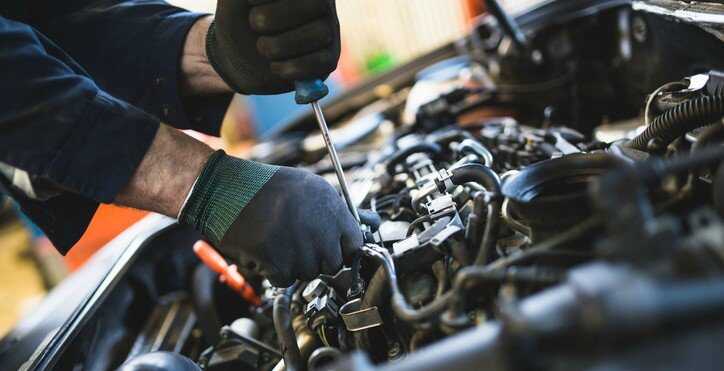How To Repair Your Car And Keep It On The Road
Dealing with auto repairs can create quite the hassle. Considering how expensive they can be, you might not know how you should handle your repairs. Whether you hire a professional or decide to do-it-yourself, it's important that you think about the important factors of your decision. Continue reading to find out more.
Hastings Windshield Replacement FL
Look for an auto repair shop that displays their certifications for everyone to see. Get a good look at it to make sure that they are current. Even if they are certified, that does not guarantee quality work, but there is a greater chance of the work getting done correctly.
Keep your car's owner manual handy. Knowing vital car information can really help when something unexpected occurs. If you know your car's controls, you may even avoid a trip to a mechanic. If you do need a mechanic, you should have the make, model, and trim level available so that they can figure out things like your transmission configuration, size, etc. much quicker.
When performing your own car repairs, make sure you budget enough time to get the job done. It's easy to underestimate how long a repair job will take. You may encounter difficult to remove bolts or nuts, or find out a part is harder to remove than you anticipated. Giving yourself enough time to complete the repair safely will make the job much less stressful.
Before dropping your car off for repairs, remove any valuables. Mechanics may need to take these items out to do the work and they aren't responsible if you discover something missing. Remove all content from the trunk, too.
Do not hover over the technician while they are trying to do work on your car. It is important that you spend time with them to explain what the problem is with your vehicle, but once you have done that, leave them alone so they can do their job without any interruptions.
Take action if you believe a garage or dealership ripped you off. Notify one of the manager and give them a chance to issue a refund. If you are still not satisfied, contact your local Better Business Bureau to file a complaint. Your city or state consumer affair office is also a good resource.
If your car's electrical system is behaving strangely, try cleaning the ground cables. Auto makers use the metal body of a vehicle to act as a "ground" for the electrical system. Over time the area where this cable connects to the frame can corrode, causing a stray electrical current that can wreak havoc on your system. This cable is usually connected on the firewall or fender, so simply disconnect it and use a wire brush or sandpaper to clean the contacts.
Don't get sucked into to the lure of aftermarket parts for new cars. You want your baby to run as well as possible for as long as possible, and that means spending the extra to get parts that match the ones already in your car. Trying to get that clunker to run just a few more miles? Save the money and take the aftermarket versions.
Just because it is winter does not mean you shouldn't wash your car. While it probably doesn't seem like there's a point, winter time can be damaging to your vehicle. The sand and salt from winter leads to rust and abrasion. Just be sure that you're drying your car off before you start to drive around so that ice doesn't form.
When it is time to bring your car in for work, think carefully about whether you want to go to the dealer or a local repairman. The dealer often knows the most about your particular type of vehicle, but they generally cost the most as a result. Weigh your options and go with what is right for you.
Keep a log that includes information on any maintenance that you have ever done on your car. To make things easy, put this log in your glove compartment box. If there is an issue with your car, this information can help the technician figure out what is going on much more quickly.
You need to keep track of all the repairs and transactions with your garage or dealership. If you decide to file a complaint, you will need to document what happened. Keeping these documents will also help you inform buyers about the repairs you did on the vehicle if you want to sell your car.
Check a variety of sources of information before attempting an auto repair for the first time. Do a good online search, watch instructional videos and seek out books at your local library and take time to talk with an experienced mechanic before you dive in to try that repair. Once you feel comfortable with the concept, make a list of the things you need and the steps you will need to take to make the repair successfully.
You do not need to purchase a new filter every time you go in to have an oil change. The auto repair person may show you a worn filter next to a new one and claim it is yours, but be firm and let them know that you do not need a new one right now.
It is time for you to focus on getting your priorities in order when dealing with car repairs. Your automobile is a complex vehicle, and it needs the right care. Use the tips and advice that have been presented to you here so that you can make sure you're ready next time.

